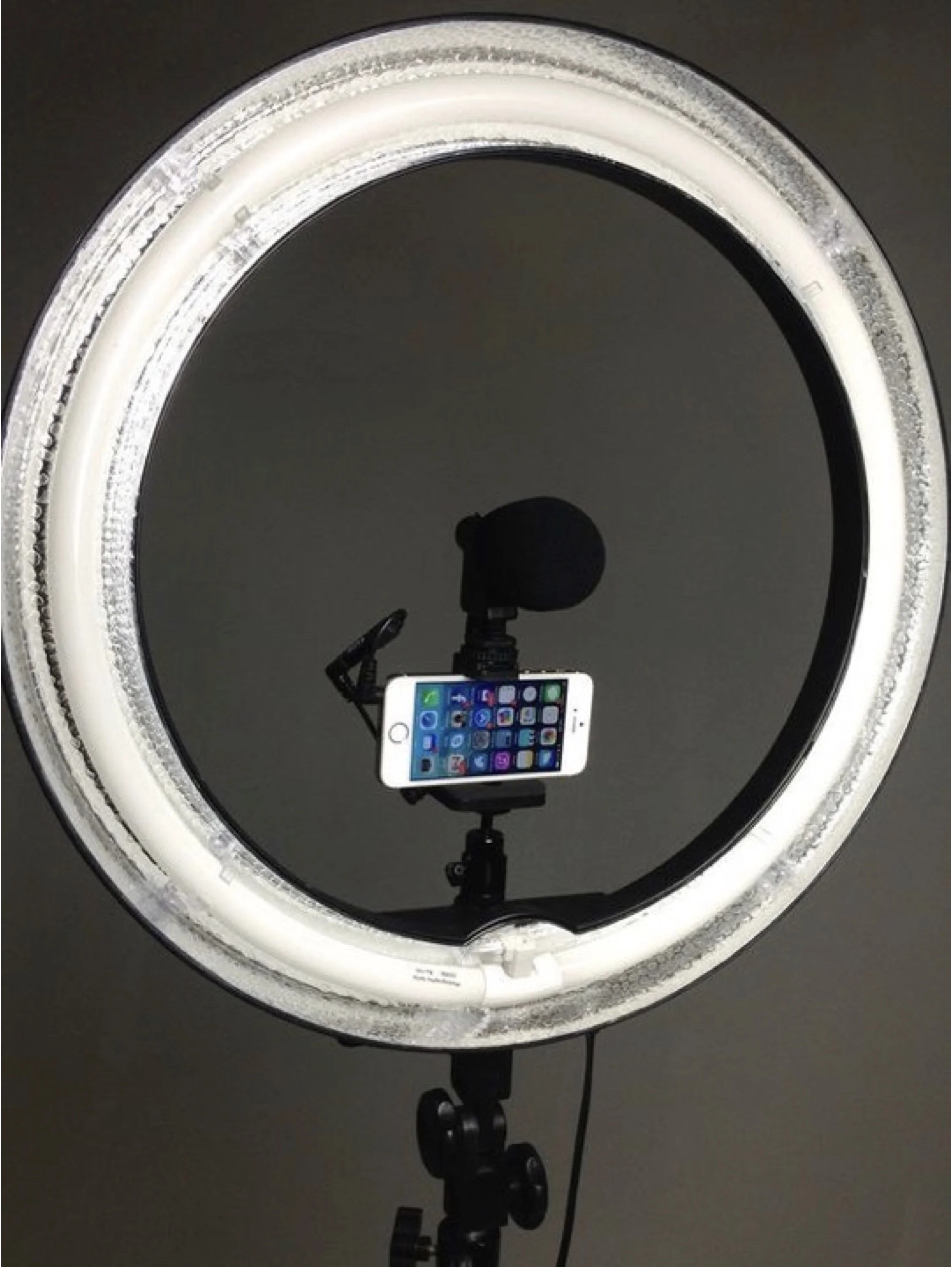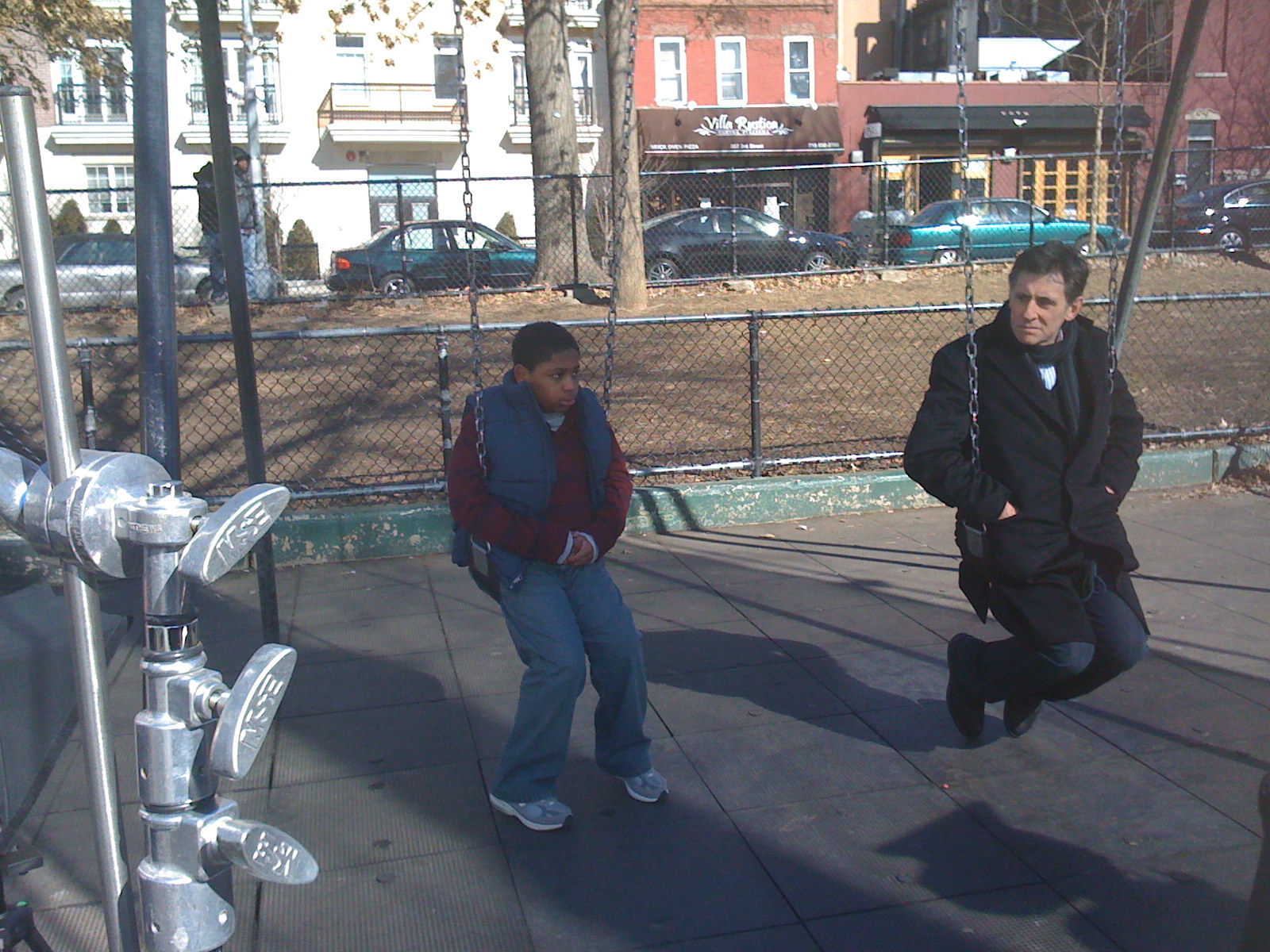Anther Thank You
My Client's Work...very proud of every step I get to walk with an artist
Kelechi Ezie yay for audition coaching. Could not have done it without the one and only Guru. Wanna book jobs everyone? Coach with Roz! Nuff said.
http://youtu.be/eI4DyAgkEq8
New product for actors just getting started- 2011
I am attempting to create a new type of reel for actors looking to get on film for the first time. It's not a reel like I do with actors who are further along in the career but really a first film experience. It's all an experiment at this point. I am really hoping that I can figure out how to make a low cost high quality film for for beginners. I am calling them monologue shorts. They take only half a day to shoot and cost less than the other reel products we offer.
I shot two of them this weekend: The Truth About Blogs written by and starring Kelechi Ezie and Beaty and Hurts Like Love written by and starring Toni Robeson-May.
I can't wait to get to the edit to see if they are satisfying to an audience. More to come...
In Treatment Love...I am very proud of Aaron.
Child’s Play No More - Baltimore Sun
March 29, 2009|By David Zurawik | David Zurawik,david.zurawik@baltimoresun.com
Aaron Grady Shaw has been living two lives the last four months.
In one, he’s just a 12-year-old kid trying to navigate his way through seventh grade at Perry Hall Middle School while dreaming of a big year as a third baseman in a county boys’ baseball league this summer.
In his other life, though, he has already advanced far beyond the level of wishing and hoping. At 4 feet 11 inches, he has stood shoulder to shoulder on New York City sound stages with Emmy- and Golden Globe-winning veteran actors while speaking the words of Pulitzer Prize and Tony Award writers - a featured performer in a prime-time series on HBO, television’s most prestigious channel.
Not even Aaron’s classmates know about the life that he has been living in three- and five-day hotel stays in Manhattan since December. But they - and millions of others - will, starting April 6 when the first episode featuring Aaron in the second season of HBO’s critically acclaimed In Treatment makes its debut.
Aaron, who has been riding Amtrak trains and tour buses with his grandmother since age 5 to auditions in New York, delivers a breakout performance as a troubled 11-year-old patient of Dr. Paul Weston, the psychologist-therapist played by Gabriel Byrne. In the four episodes made available for preview, the adolescent performer, who has never had a formal acting lesson, more than holds his own with the Golden Globe-winning Byrne in scenes that essentially become two-person plays. It is quality, adult television at its literate best, and it’s a revelation to see this little kid holding up his half of the dramatic load opposite such a large on-screen persona.
“When I started going to those New York auditions with my grandmother and grandfather, I was only 4 or 5 years old, and I didn’t really understand a lot of what was happening. I had it in my mind that I wanted to be rich and famous - that was all I knew,” Aaron said in an interview last week. “Now, after In Treatment, I think I still want to be famous, but I want to be a great actor, too, if I can. I learned so much, and now I want to try and go all the way with this acting thing.”
What did he learn? How to cry, how to “cuss” at his parents and how to “go to a deep, dark scary place” inside himself and find such emotions on cue. He discovered a way to get inside his imagination and live there until the director says “cut.”
(Page 2 of 5)
He also learned that the “camera is a truth detector,” that it “sees everything” and so you better be “totally in the moment” and true to what is happening onstage. In short, he went from being a child performer with lots of personality who was good enough to do commercials and a couple of independent films, to being an actor worthy of sharing a stage with the likes of Byrne. Talk about adolescence and coming of age.
“I am so proud of Aaron, because what he really became on the set of In Treatment is an actor,” says Rosalyn Coleman, the Broadway actress, director and talent coach brought in by the producers to serve as a guide to Aaron during the filming of the series.
“When I saw the script for what they wanted Aaron to do on In Treatment, I thought, ‘Are you kidding? You’re going to find a kid that age who can do this?’” adds the veteran of such Broadway productions as August Wilson’s Piano Lesson and Seven Guitars. “But he did it - and he had to become a real actor to get there. I think people are going to love the work he did when they see it.”
For those not familiar with In Treatment, which was renewed by HBO after one season despite modest ratings, the series is built around two psychologists, Weston and the therapist he sees each week, Dr. Gina Toll. The character of Toll is played by Dianne Wiest, who won an Emmy last year as best supporting actress for her splendid work in the series.
Starting April 5, HBO will air five 30-minute episodes a week, with each of the first four featuring a session between Weston and one his patients. The fifth in each weekly cycle will feature Weston’s weekly appointment with Toll. From the rhythm of their silences and speech, to the looks and body movements between them, what Wiest and Byrne produce is nothing short of poetry - and it sets a very high bar for the other performers.
Weston’s third session each week is with Oliver, an 11-year-old who is tormented by eating and body image issues, as well as a bully at school. His parents are going through an angry divorce. It is a rich, but complicated and challenging, role.
And there is no place for an actor to hide on this series. Most of the episodes take place on one set - the office/living room of Weston. The world of In Treatment is often just two actors, a couch, a rug and the chair in which Weston sits.
All of which called for an accelerated education of Aaron Shaw once he was chosen to play Oliver.
March 29, 2009|By David Zurawik | David Zurawik,david.zurawik@baltimoresun.com
(Page 3 of 5)
The lessons began with the bodysuit the costumers put together so that Aaron would look 15 to 20 pounds heavier as Oliver.
“One thing maybe you should know is that I wear a fat suit,” Aaron says at the start of our interview. “That’s not me - that’s a fat suit,” he says trying to make sure he is not confused with the overweight boy he portrays.
But as an actor, he came to understood that the bodysuit and a quilted vest that he wears to his appointments with Weston were gateways into Oliver’s psyche, and so, he embraced them.
“At first, the directors and producers tried to give me a feel for what Oliver is going through, and they told me that what I had to do was put myself in the place of Oliver and be him for a while,” Aaron says. “They described him as boy who’s quiet, shy, depressed, alone, sad - and his parents are going through divorce. He has no friends, he feels like nobody wants him, and he has a bully at school named Eric picking on him. You know the vest that I was wearing? That was the purpose of it - it was like my little shell. I just stayed hidden inside it.”
The shell metaphor is a strong one. In their third session, Oliver brings a turtle, and forgets it when he leaves. Weston reluctantly takes over its care for a few days.
In Treatment is that kind of show - shells within shells, and metaphors within metaphors skillfully written and brought to life by writer-producers like Warren Leight, who won a Tony Award for his play Side Man, and screenwriter Marsha Norman, winner of a Pulitzer Prize for her play, ‘Night Mother. Two-time Emmy-Award-winner Paris Barclay directed and serves as executive producer along with Leight.
The fourth episode closes on a brilliant moment with Weston making a sandwich in his kitchen for a lonely and hungry Oliver after their session. But it is the fifth and sixth episodes that led executive producers Warren Leight and Paris Barclay to bring in Coleman.
“I had to learn how to cry for episodes five and six,” Aaron says. “I never had to make myself cry before. And my coach told me that I had to put myself in character, and then think of myself going through the exact same things that my character is going through. So, I had to think really sad thoughts and dig really deep. I had to think, like, ‘What if one of my parents died?’ I had to take myself away from everything else, and be in that little corner. She told me I had to go to that dark, deep place and be there all by myself.”
(Page 4 of 5)
The tears flowed on cue in episode five, but in six, the script called for Oliver to confront his parents. That, Aaron says, was the biggest challenge of all.
“I had to cuss at my parents, and that was the hardest, because I would never do that to my parents. Daddy would probably send me to an early grave,” Aaron says of his father, Ardie Shaw, senior pastor at The New Cavalry Life Temple in the city of Baltimore. “So I really had to be Oliver that day.”
At first, he told Coleman he couldn’t say the words. But she knew better, and once again, she led him to that “deep and dark place” where he went to learn how to cry an actor’s tears.
“She took me off to the side and told me to imagine something bad happening to Oliver. Then she had me close my eyes and imagine all the bad things Eric had done to Oliver,” he says.
As viewers know from the conversations between Aaron and Weston, these acts range from Eric verbally abusing Oliver for his weight in front of his classmates, to urinating on Oliver’s sneakers at a party held by a girl Oliver was trying to impress.
“And I would just close my eyes, and think about that, and she would say, ‘Eric, Eric, Eric,’ and little words about what he did to me, and then, I just started feeling mad and like I could do something crazy like that to start cussing at my parents. … And then, I did it.”
Aaron’s mother, Vernette, who works in Washington for the federal government, accompanied him that day to the Silvercup Studios in Queens where the series is filmed.
“It brought tears to my eyes when I saw him, because all I could imagine was this kid Oliver who is going through that,” she says. “I’m looking at Aaron on a monitor in the back of the set, and everybody back there has tears in their eyes, too. And the cameraman turned to me and said, ‘Mom, I know you’re not getting used to hearing those words, but that’s Oliver talking. It’s not Aaron. It’s Oliver.’ But we were all crying.”
“What was fascinating to me on the set,” says Leight, “was that every time Aaron would finish one of those scenes, members of our New York crew, these 58-year-old, cigarette-smoking, tough guys, would come up to me and say, ‘Man, I gotta tell ya, that scene really got to me.’ ‘I rarely see my kids,’ or ‘I barely know my youngest son.’ They really related to this story line with Aaron.”
(Page 5 of 5)
Beyond the universality of “most people either have a screwed-up relationship with their parents or a screwed-up relationship with their kids,” Leight says it was Aaron’s performance that made it so relatable.
“We wanted the emotion to be real, not saccharine, and for that to happen, Aaron had to make it real. And it was hard, because in real life, he is likable and even charming. But, as an actor, Aaron provided the sullen, angry, withdrawn edge that the role required.”
In the end, Leight says, “Aaron just kept getting better and better” as the filming continued.
Leight tells a backstage anecdote about the education of Aaron Grady Shaw that took place about a week after Coleman started working with the 12-year-old actor. It shows what a fast study he had become.
“Don’t forget, this kid is in scene after scene with Gabriel Byrne. I mean, it’s kind of hysterical when you think of it that way,” Leight says.
“And Gabriel was always very solicitous and kind to Aaron. But they were doing a scene, and at one point, Aaron took a pause. And Gabriel thought Aaron had forgotten his line. So, Gabriel, trying prompt him in the way that a therapist would, said, ‘Were you maybe feeling angry, Oliver?’
“And Aaron looks at him and says, “I’m only taking a pause, Mr. Byrne. I’m just taking a pause.’”
Clients are a mystery

Sent from my iPhone.
(That's why it's short & sweet w/ typoes)
For Business:
For Fun:
Starting to think o was crazy to think I'd clean up last night's edit in a corner during the photo shoot.

via tweetie
Put my face on on the car. Will be editing @nessawilliams reel the rest of the daY.

via tweetie
Put my client Latka on tape for a pilot

Download now or
(766 KB)
Sent from my iPhone.
(That's why it's short & sweet w/ typoes)
My client and future client work it out.

The beautiful people.
Last artist of the day, a privilege to see her lovely wild Juliet

Sent from my iPhone.
(That's why it's short & sweet w/ typoes)
13 yo with a passion for acting!

Sent from my iPhone.
(That's why it's short & sweet w/ typoes)
2 hour session.

Sent from my iPhone.
(That's why it's short & sweet w/ typoes)
Last client was early & hot!

Sent from my iPhone.
(That's why it's short & sweet w/ typoes)
First client is prepped for her pilot audition.

Sent from my iPhone.
(That's why it's short & sweet w/ typoes)




